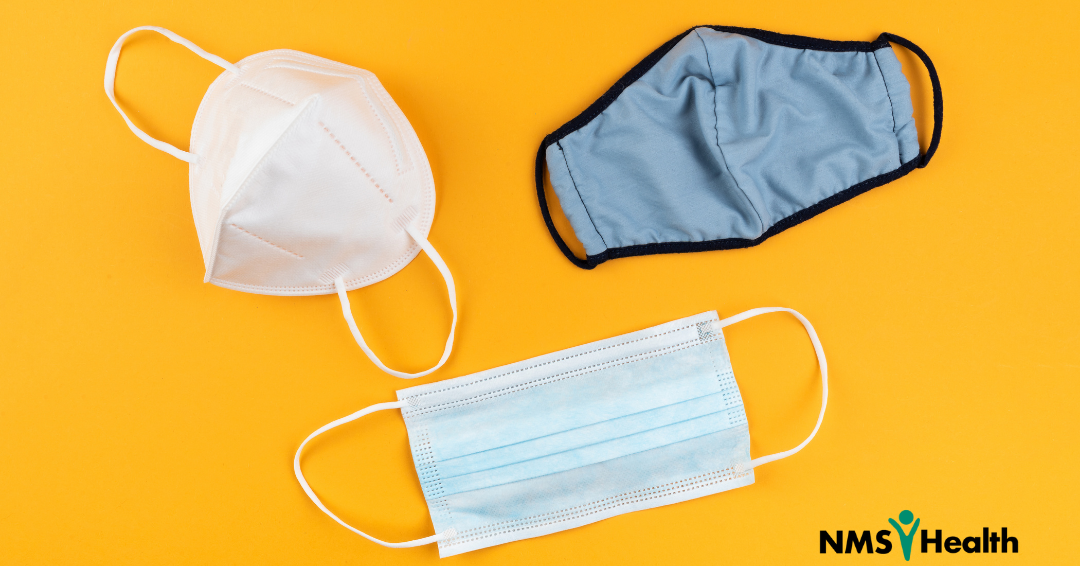A year and a half ago masks were thrust into the spotlight as we entered the beginning of the COVID-19 pandemic. While masking was common practice in many industries, for others this was a new and confusing time. Now with the surge of COVID-19 cases fueled by the Delta variant, many officials are asking for us to mask up again. As we prepare for a possible remasking, let’s review which masks might be best for you and when you should be using them.
A detailed description of this image can be found below

Cloth mask
A cloth mask is a non-medical grade mask made from fabric or other materials. It protects others from the respiratory emissions of the wearer and offers some protection for the wearer as well. When looking to purchase or make a cloth mask, a tighter fabric weave is best. Cloth masks can have an efficacy rate of 26%-80% depending on how it is worn, the number of layers, and the type of fabric. Cloth masks should be used by anyone who isn’t experiencing any COVID like symptoms, and in any situation where physical distancing and COVID-19 cases are present. WHO recommends a three-layered structure for cloth masks, including an inner layer, an outer layer, and a middle layer which can be an additional layer of fabric or filter insert.
Surgical Mask
A surgical mask is also known as a medical mask and is made from three layers of synthetic nonwoven material that sandwiches layers of filtration in the middle. These masks are single use only and are to be disposed of after wearing. They generally offer more protection than cloth masks, but they do not provide a tight fitting seal like a respirator. Surgical masks protect others from respiratory emissions of the wearer and provide some protection for the wearer. Surgical masks should be worn by all healthcare workers, and anyone experiencing possible or confirmed symptoms of COVID-19. In situations where social distancing cannot be achieved, those over the age of 60 and those with underlying health conditions should also consider wearing a surgical mask.
Respirator
Filtering facepiece (FFP) or N95 masks are a type of respirator which removes particles from the air that is passed through it via an electrostatic filter. Respirators protect others from respiratory emissions and reduce exposure for the wearer. They are specifically designed to protect healthcare workers, like those who provide care to COVID-19 patients or perform high risk procedures such as aerosol-generating procedures. For maximum protection, healthcare workers should undergo a respiratory fit test to ensure that they have an appropriate seal. Like surgical masks, respirators are single-use and should be disposed of properly after use. Some respirators have exhalation valves in them. These types of respirators are typically used in industrial settings and they are not effective at preventing the spread of COVID-19. WHO recommends that if you are not a healthcare worker, you should consider saving N95 respirators for those who are.
It is also important to note, that with the widespread use of masks, a number of counterfeits have cropped up in stores and online. These masks are described as being N95 or NIOSH approved when in reality they are counterfeits. To learn more about fake N95’s visit our blog post here.
Let’s get started!
Do you have questions about masks or respirator fit testing for your employees? We’re here to help! NMS Health's service is designed to make the screening process simple and less time consuming for your hiring teams. With a large network of clinic and lab partners, we've got coverage in all 50 states!
Click here to Learn More and to get started today!


